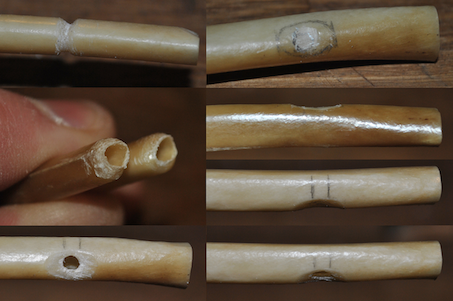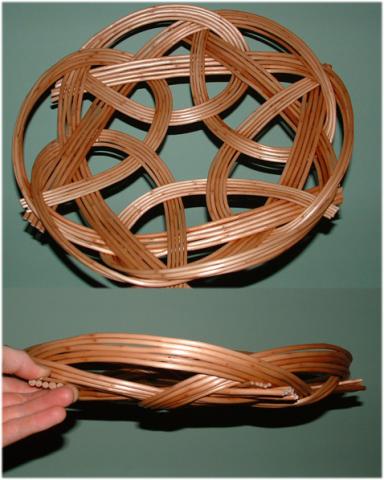Simon Wyatt

Simon Wyatt
Independent Researcher
Country
United Kingdom
Member since
Bio
I am interested in constructing working models of wind instruments, and percussive objects from the Palaeolithic to the Iron Age. I am particularly interested in the experiential side of playing the instruments and as part of an MA in Museum Studies I explored the sensory role of music in the presentation museum objects. I have a keen interest in the role of music in ritual and the construction of identity and the perception of self.
The sound-making-devices of hunter-gatherers are largely made from perishable materials and part of my interest involves examining the different available organic resources, which may have been used for instrument construction. I am a proficient basket maker, having taught willow basket weaving to children and adults, and have produced fibre and cordage from different materials. I am also a keen potter, and have put my hand to silversmithing.
Between 2008-2012, I was an Honorary Research Fellow at Bristol University, where I taught a series of Lifelong Learning Lectures. From 2013 to 2014, I was a Postdoctoral researcher at Durham University for the Songs of the Caves Project. I am affiliated with The Acoustic and Music in British Prehistory Network and I co-organised the Music sessions at the TAG (Theoretical Archaeology Group) conferences in 2010 and 2013.
I have spoken at the International Study Group of Music Archaeology and had papers at the ICTM (International Council for Traditional Music - Archaeology). I have also demonstrated model instruments at the EXARC conference (2013), St Fagans (2015), and at the Ashmolean and British Museums. My recordings have been used for EXARC podcasts, such as the recent episode of The EXARC Show, Seeking Sustainability in South-Africa.
My research publications can be found at https://independent.academia.edu/WyattSimon
, and some recordings may be heard at https://soundcloud.com/user-35127766
.
Thinking “is always to some extent experimental in its method. It starts from practice and returns to practice”.
R. G. Collingwood, cited in V. Gordon Childe's Social Worlds of Knowledge. (1949)
The sound-making-devices of hunter-gatherers are largely made from perishable materials and part of my interest involves examining the different available organic resources, which may have been used for instrument construction. I am a proficient basket maker, having taught willow basket weaving to children and adults, and have produced fibre and cordage from different materials. I am also a keen potter, and have put my hand to silversmithing.
Between 2008-2012, I was an Honorary Research Fellow at Bristol University, where I taught a series of Lifelong Learning Lectures. From 2013 to 2014, I was a Postdoctoral researcher at Durham University for the Songs of the Caves Project. I am affiliated with The Acoustic and Music in British Prehistory Network and I co-organised the Music sessions at the TAG (Theoretical Archaeology Group) conferences in 2010 and 2013.
I have spoken at the International Study Group of Music Archaeology and had papers at the ICTM (International Council for Traditional Music - Archaeology). I have also demonstrated model instruments at the EXARC conference (2013), St Fagans (2015), and at the Ashmolean and British Museums. My recordings have been used for EXARC podcasts, such as the recent episode of The EXARC Show, Seeking Sustainability in South-Africa.
My research publications can be found at https://independent.academia.edu/WyattSimon
, and some recordings may be heard at https://soundcloud.com/user-35127766
.
Thinking “is always to some extent experimental in its method. It starts from practice and returns to practice”.
R. G. Collingwood, cited in V. Gordon Childe's Social Worlds of Knowledge. (1949)


